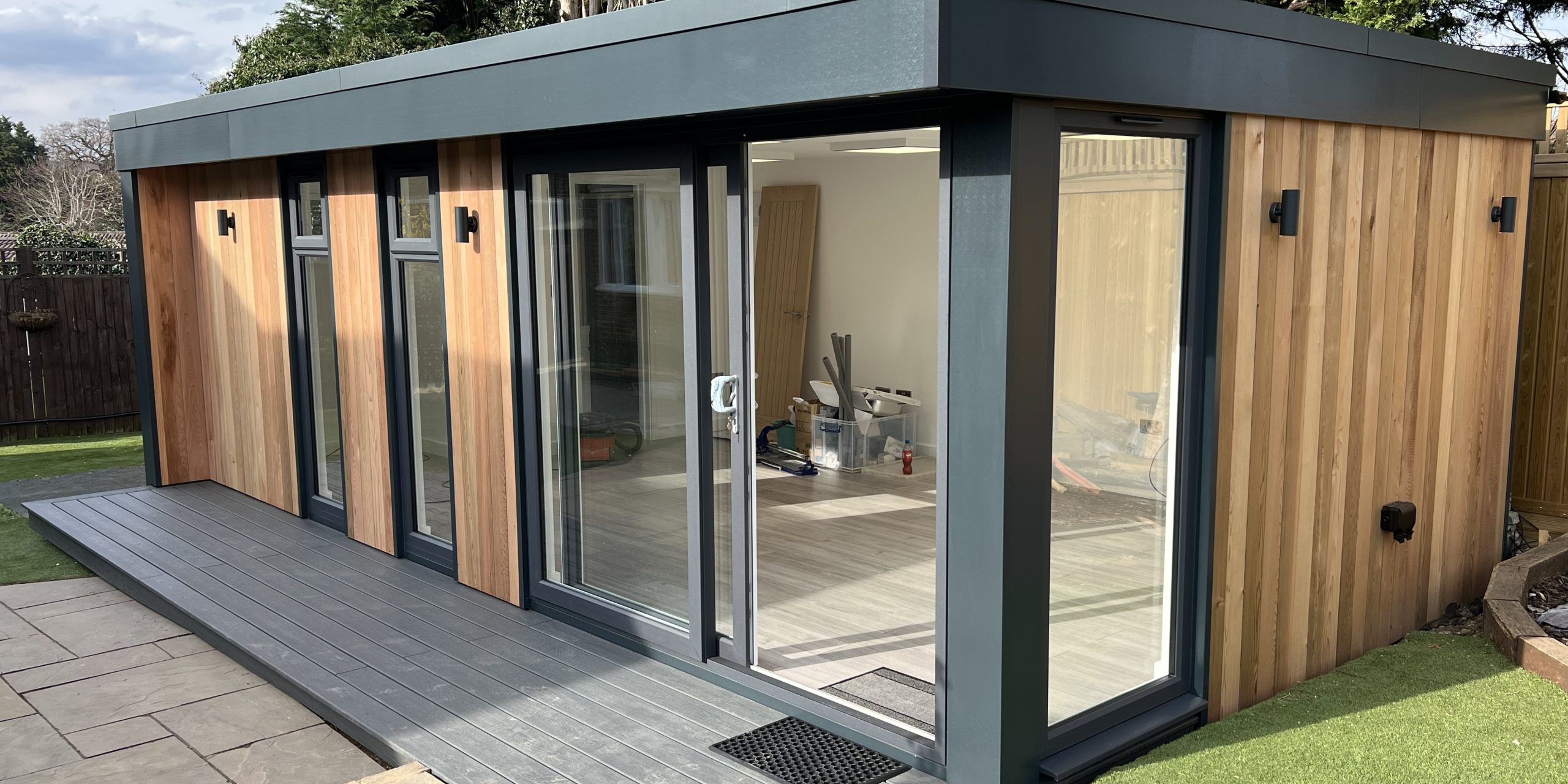Setting up a garden office can be an attractive option for many business owners who want to separate their work life from home while enjoying a short commute. For those considering this setup, renting the garden office to your business can be a smart move due to potential tax benefits. This arrangement allows homeowners to receive rental income while their business can claim tax deductions on the rent.
By establishing the garden office as a distinct business space, individuals can effectively manage expenses and even gain additional financial benefits. The garden office must be used primarily or solely for business purposes to maximise these advantages. However, using part of it for personal activities might impact the tax claims one can make.
Additionally, it is important to understand the implications this setup might have on property value and tax obligations. Renting your garden office can formally make a part of your home a commercial property, which may influence potential buyers. Careful consideration should be given to the personal and financial aspects of this decision.
Legal and Tax Considerations
Setting up a garden office for business use involves several legal and tax factors. These include planning permissions, tax rules, and VAT considerations. It’s crucial to understand these aspects to ensure compliance and to make the most out of available tax benefits.
Planning Permission and Permitted Development
Garden offices can often be built without planning permission in the UK, thanks to permitted development rights. However, it depends on size and location. If the office is large or the building is listed, planning permission might be required. Neighbours’ rights and local council rules should be considered to avoid disputes. Always check with local authorities before proceeding. Ensuring the office meets building regulations for safety and usage is vital.
Understanding Tax Implications and Relief
When using a garden office solely for business, corporation tax and possible capital gains tax implications arise. The office costs may be classified as a capital expenditure, meaning they’re not fully deductible under corporation tax rules. Instead, they might qualify for capital allowances. If sold, and used solely for business, capital gains tax may apply. Combining personal use can affect tax relief eligibility, so understanding the usage limits is critical.
VAT Considerations for Garden Offices
VAT considerations are essential if the business is VAT registered. A company can reclaim VAT on the purchase and installation of the garden office if it’s used solely for business. Partial personal use can reduce VAT reclaim eligibility. Business rates might also apply, but some relief may be available if the office qualifies for business rates relief. Compliance with VAT and HMRC guidelines ensures proper financial management.
Spelling and grammar have been adjusted to British English as requested.
Setting Up and Maintenance of the Garden Office
Creating a functional garden office involves careful planning for equipping and considering ongoing business expenses. Proper setup ensures productivity, while maintenance helps manage costs and compliance.
Equipping Your Garden Office for Business Use
Equipping a garden office requires focusing on comfort and efficiency. Insulation is crucial for temperature control, making the space usable year-round. Electrical wiring should be installed by a qualified electrician to safely power computers and other office equipment. Consider incorporating heating and cooling systems to enhance comfort.
Plumbing might be needed if kitchen or bathroom facilities are required. Fixtures and fittings like desks, chairs, and storage should cater to the nature of the business. Thoughtful design boosts productivity, helping one adapt to a professional environment without leaving home.
Business Expenses and Running Costs
Running a garden office involves ongoing expenses. Utilities such as electricity and heating contribute to the running costs. If the office is used solely for business, these can be considered business expenses for tax purposes. It’s important to maintain accurate records to distinguish between business and personal use.
A limited company can cover some initial costs, but it’s essential to note the potential tax implications, such as benefit-in-kind implications on personal use. Awareness of mortgage impact and rateable value is necessary. Keeping track of these ensures compliance and helps optimize any potential tax benefits.


